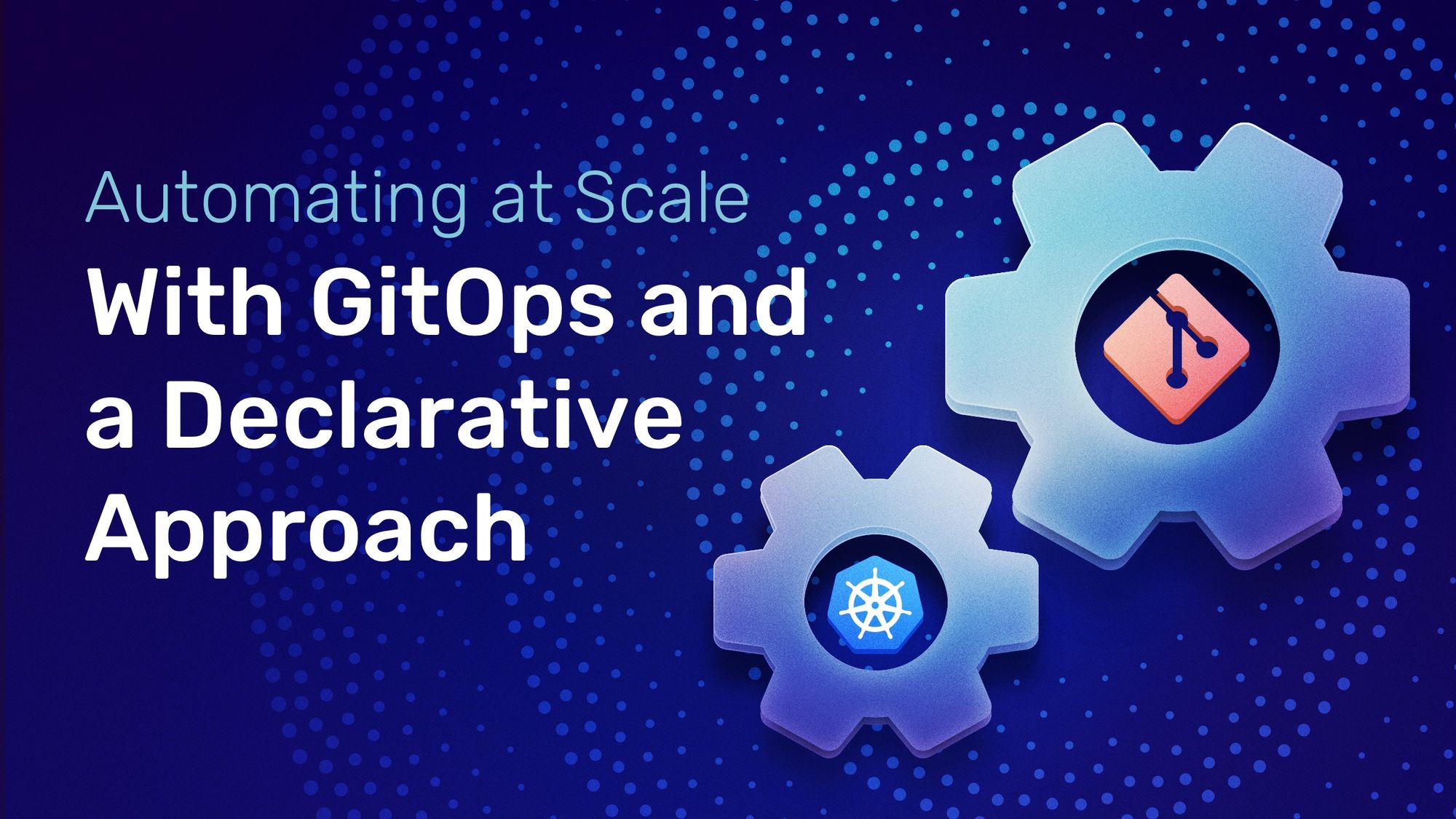Automating at Scale with GitOps and a Declarative Approach

With every other developer screaming, “Automate all the things!”, cloud systems everywhere are slowly but surely replacing manual tasks with automation.
You are probably already working to automate as much of your cloud infrastructure operations as possible - to increase efficiency and business agility while reducing the likelihood of human error. Are you adopting an imperative or declarative approach to your automation?
What is an imperative approach to computing?
With imperative computing, the user defines the desired state of an object as well as the exact steps that will be taken to achieve that state. Imperative computing is best suited for small deployments because, while it grants the user full control over the automation framework, it makes it more difficult to scale applications. Manual configurations are time-consuming and prone to human error.
What is a declarative approach to computing?
Declarative computing takes the opposite approach. The user defines the ultimate goal to be reached — such as the number of machines to be deployed, whether workloads are virtualized or containerized, and how applications are configured. Users focus on the ‘what,’ and the system is left to decide the ‘how.’ The computer assesses the current state and calculates the steps that need to be taken in order to reach a defined goal. After finding the best possible execution, it is performed.
With the declarative approach, the user needs to define fewer parameters and saves time as a result. It also allows conversion to a desired state whenever a manual change has been made to the system. This makes a declarative approach essential for organizations scaling the size and number of deployments. It also puts the declarative approach at the heart of cloud native.
Kubernetes itself is a declarative system, as it provides declarative APIs that can be targeted by arbitrary forms of declarative specifications. Because Kubernetes applies a declarative approach to the management of workloads, it makes applications more efficient, scalable, and automated. But it is a dense technology — manually configuring Kubernetes clusters is a time-consuming process. GitOps applies a declarative approach to the management of Kubernetes clusters, so cloud native applications can become even more efficient, scalable, and automated.
What is GitOps?
GitOps is an operating model that enforces declarative descriptions of infrastructure, creating single sources of truth that dictate the desired states of containers — empowering developers to own the lifecycle of Kubernetes clusters and deploy at scale. It provides best practices, standardized workflows, and end-to-end CI/CD pipelines that streamline development processes. It is called GitOps because the single sources of truth are stored in Git, a source control repository.
When implementing a GitOps approach, there are many technologies that must be used alongside GitOps to deploy new versions of your applications. Most importantly, a declarative, cloud native ingress is required to allow access to Kubernetes services from outside the Kubernetes cluster, including the GitOps Engine. Without top-notch networking, clusters cannot communicate with one another. An ingress like Traefik Proxy can work alongside GitOps processes to streamline development.



